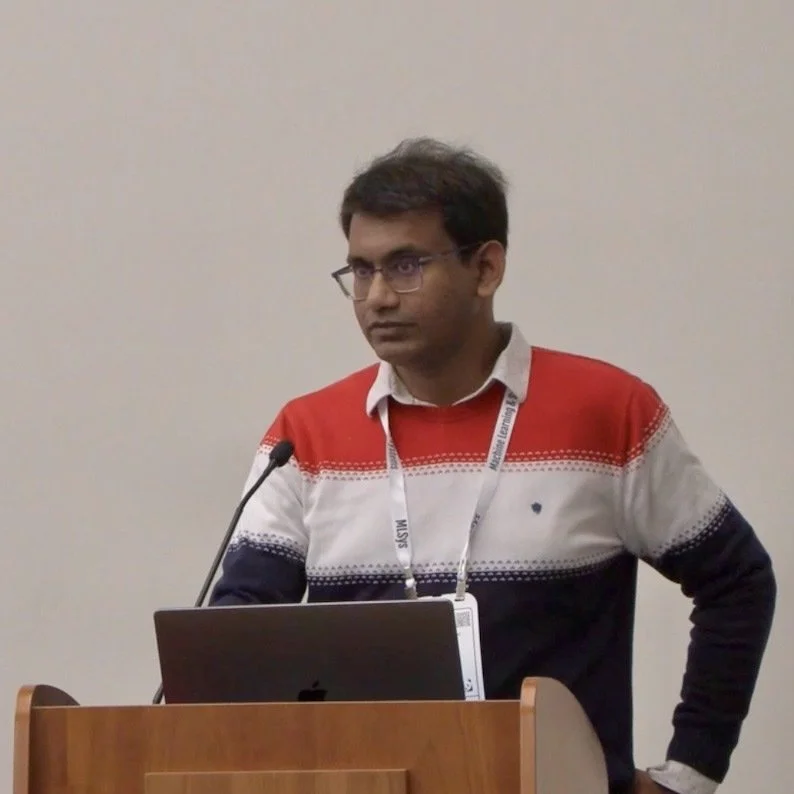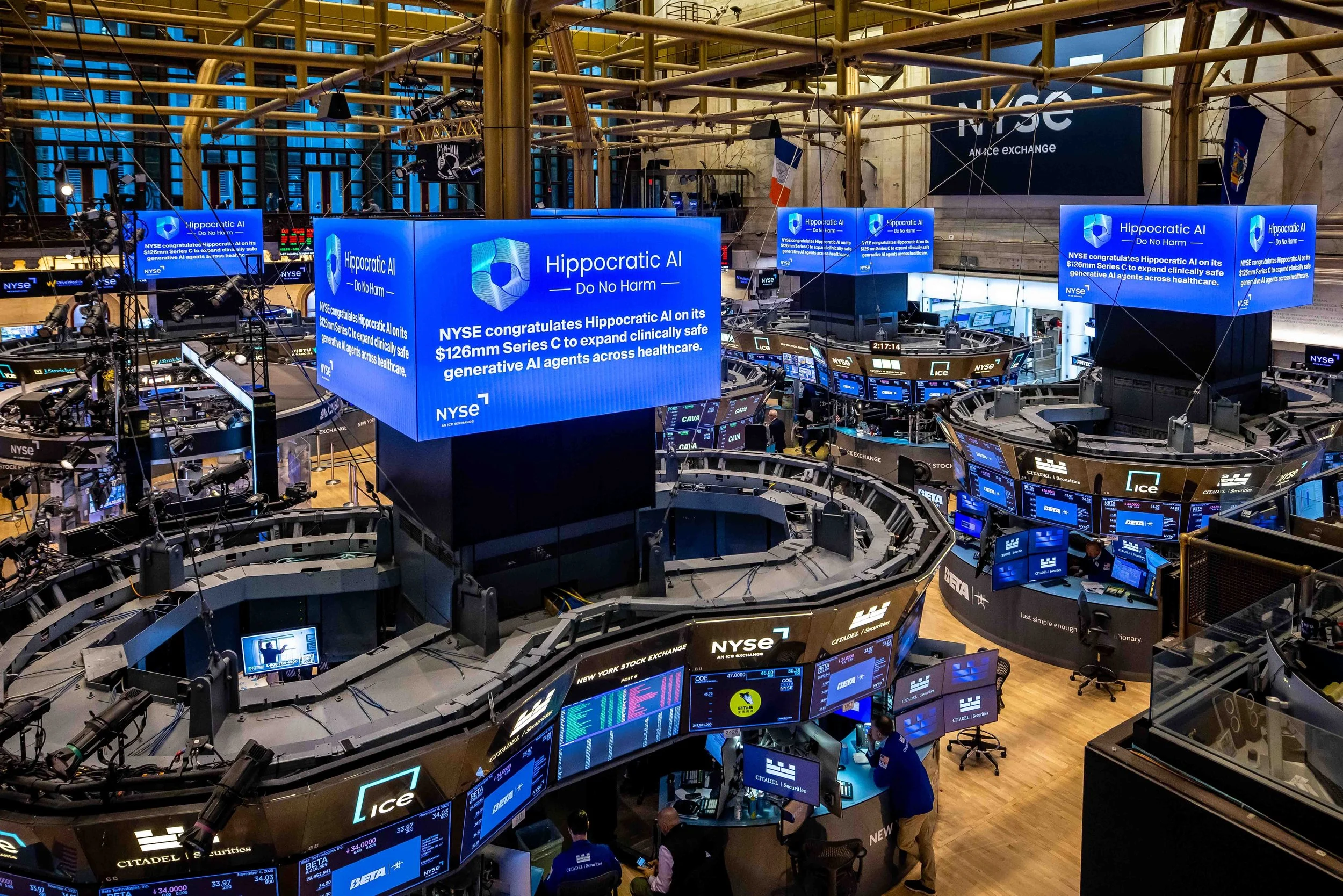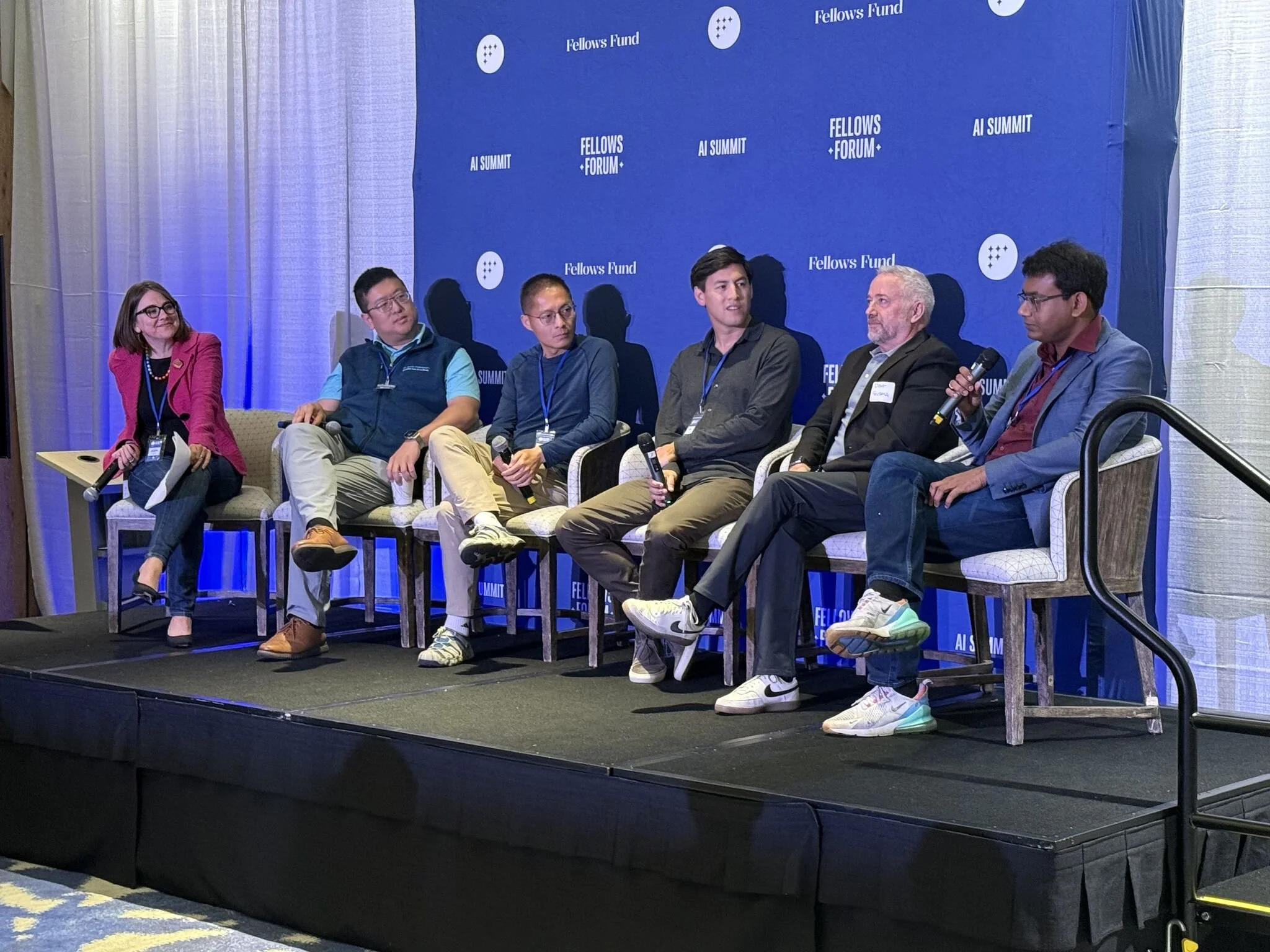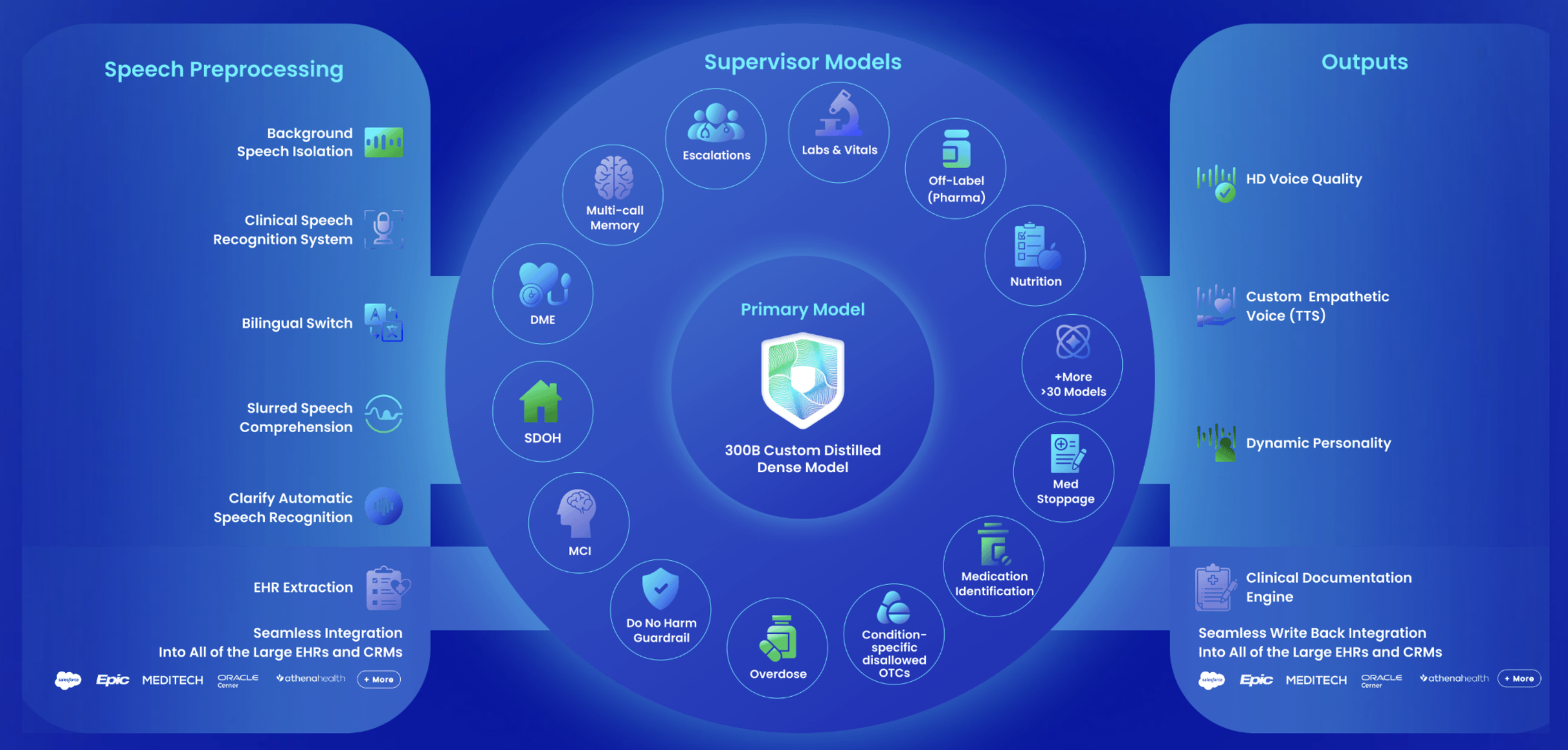Building Safe Generative AI with Human Touch
Subhabrata (Subho) Mukherjee, PhD
Co-Founder and Chief Science Officer, Hippocratic AI
AI and technology executive spearheading the development of next generation multimodal AI models that align to human reasoning, emotion and safety. His breakthrough work featured in The Economist infuses generative conversational AI with genuine human touch — building safe AI systems that understand, reason, and connect as naturally as we do. Executive scope spans AI platforms and organizations across speech (ASR, TTS), large language models (pre-training, post-training, alignment), and efficient inference (incl. quantization, kernels, and decoding) for frontier-scale models. Subho works closely with product, engineering, and clinical teams to translate AI capability into reliable, auditable systems suitable for real-world care delivery.
Hippocratic AI is building safe generative conversational AI for healthcare. It has received a total of $404 million in funding at $3.5B valuation and is backed by leading investors, including Andreessen Horowitz, General Catalyst, Kleiner Perkins, NVIDIA’s NVentures, CapitalG, Avenir, Premji Invest, SV Angel, and six health systems.
Prior to Hippocratic AI, Subho led large-scale AI initiatives for massive foundation LLMs at Microsoft Research as Principal Researcher. Over the past ten years, Subho has spearheaded several AI projects at leading research labs at Amazon, IBM and Google with more than 100 publications. He graduated summa cum laude from the Max Planck Institute for Informatics, Germany with a PhD in Computer Science and was awarded the 2018 SIGKDD dissertation runner-up award.
Recent Media - Features, Talks, Announcements
Series C Funding Announcement
Hippocratic AI
AI That Cares: Accelerating Safe Efficiency in Healthcare Workflows
Fellows Forum 2025
Bridging Humans and Machines: Advancing Alignment in AI
Stanford Graduate Business School
Series B Funding Announcement
Hippocratic AI
Anatomy of Autonomy: Building Agents that Scale
AI Pioneers Summit
Building the First Safety-focused Conversational AI for Healthcare
The AI Conference
NVIDIA GTC
Hippocratic AI
Recent Publications
-
MixRAG : Mixture-of-Experts Retrieval-Augmented Generation for Textual Graph Understanding and Question Answering, WWW 2026













